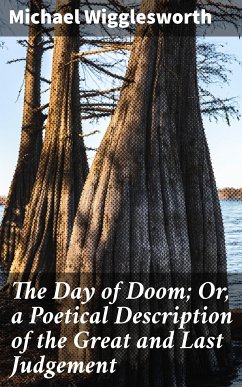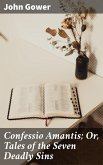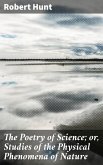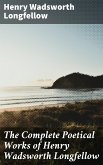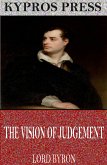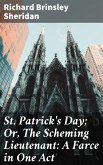In "The Day of Doom; Or, a Poetical Description of the Great and Last Judgement," Michael Wigglesworth presents a profound exploration of Puritan theology and eschatology through the lens of 17th-century verse. This didactic poem, structured in a compelling narrative form, serves both as a vivid dramatization of the Last Judgement and a cautionary tale that reflects the anxieties of a society grappling with sin and redemption. Wigglesworth's masterful use of vivid imagery, coupled with a rhythmic cadence, invites readers into a meticulously crafted world of divine judgment that resonates with the era's moral complexities and theological preoccupations. Wigglesworth, a prominent Puritan minister and poet of colonial America, wrote this influential work in 1662, encapsulating both the religious fervor and historical context of the time. His experiences as a minister in New England informed his profound understanding of human fallibility, which is omnipresent in this poem. The vivid portrayal of Heaven and Hell reflects not only his theological convictions but also the cultural milieu of early American society, characterized by a deep-seated fear of divine retribution. "The Day of Doom" is essential reading for anyone interested in early American literature, theological studies, or the evolution of poetic forms. Its exploration of eternal themes such as mortality, sin, and hope provides a rich tapestry that is as relevant today as it was in the 17th century. Wigglesworth's lyrical prowess and moral imperative make this work a seminal piece that significantly contributes to our understanding of Puritan thought and the complexities of human existence. In this enriched edition, we have carefully created added value for your reading experience: - A succinct Introduction situates the work's timeless appeal and themes. - The Synopsis outlines the central plot, highlighting key developments without spoiling critical twists. - A detailed Historical Context immerses you in the era's events and influences that shaped the writing. - An Author Biography reveals milestones in the author's life, illuminating the personal insights behind the text. - A thorough Analysis dissects symbols, motifs, and character arcs to unearth underlying meanings. - Reflection questions prompt you to engage personally with the work's messages, connecting them to modern life. - Hand-picked Memorable Quotes shine a spotlight on moments of literary brilliance. - Interactive footnotes clarify unusual references, historical allusions, and archaic phrases for an effortless, more informed read.
Dieser Download kann aus rechtlichen Gründen nur mit Rechnungsadresse in A, B, BG, CY, CZ, D, DK, EW, E, FIN, F, GR, H, IRL, I, LT, L, LR, M, NL, PL, P, R, S, SLO, SK ausgeliefert werden.

